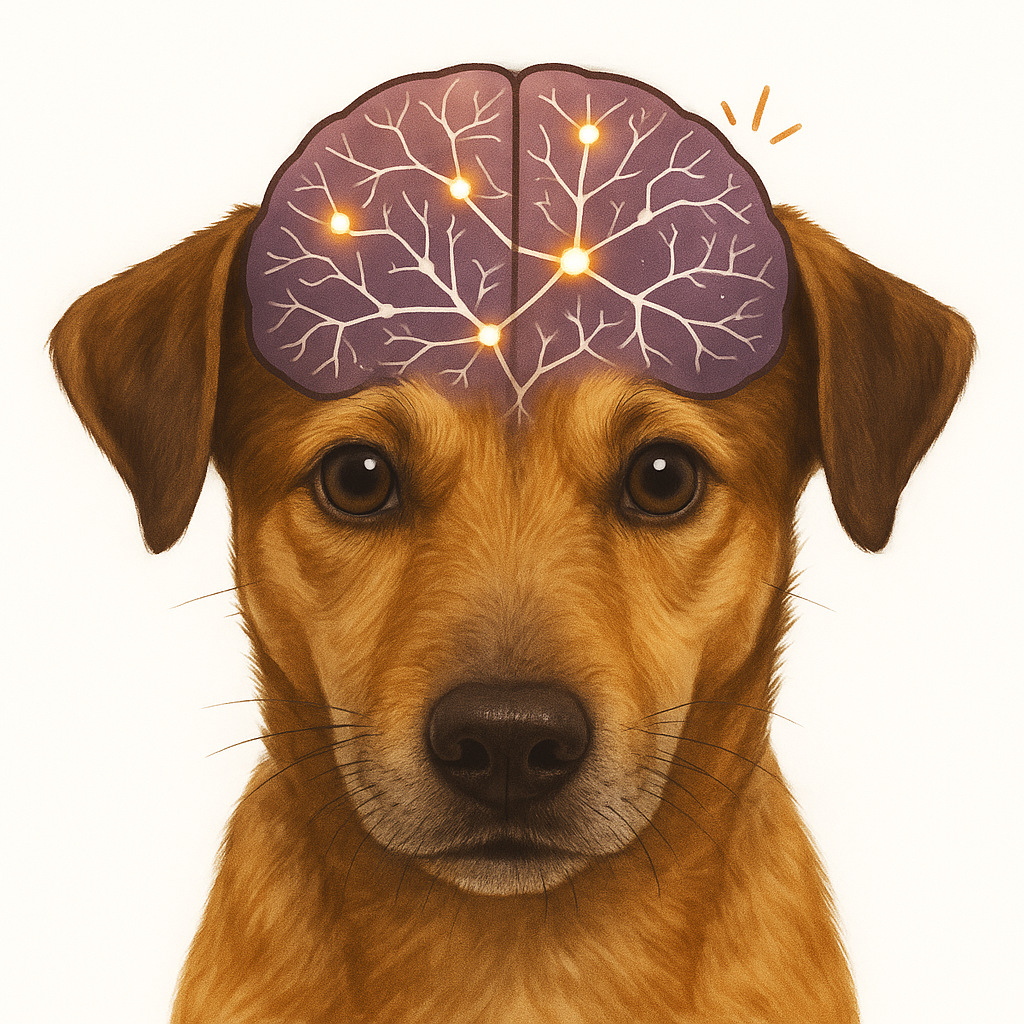
Senior Brain Boosts: Neuroplasticity in Aging Dogs
Share
Age might slow your pup’s step, but it doesn’t slow their brain. With the right stimulation and care, aging dogs can continue to learn, adapt, and thrive—thanks to the power of neuroplasticity.
What Science Reveals About Neuroplasticity in Aging Dogs
The Aging Brain Can Still Change
Neurogenesis—new neuron growth—declines in the canine brain over time, but it doesn't disappear completely. This suggests that even senior dogs retain some capacity for brain adaptation.
Read the study
Enrichment Activates Brain-Boosting Genes
Working dogs undergoing training in enriched environments show spikes in genes like BDNF and NGF—markers linked to brain adaptation and resilience.
Read the study
Enrichment Delays Cognitive Decline
In long-term studies, older dogs given enriched environments and antioxidant-rich diets showed slower memory loss and improved learning compared to those without.
Read the study
Exercise Elevates Brain Growth Factors
Although the bulk of this research exists in humans and rodents, aerobic activity is proven to boost BDNF, IGF-1, and VEGF—key neuroplasticity drivers. These benefits are likely present in dogs, too, supporting cognitive health through enriched environments and movement.
Read the study
Why It Works
Neuroplasticity is how the brain rewires when it encounters challenges — through new learning, novel experiences, and meaningful sensory stimulation. For senior dogs, the right resources (toys, puzzles, training, play, walks) can help the brain strengthen existing connections and form new ones that keep memory, curiosity, and mood vibrant.
Neuroplasticity Boosters: Enrichment Checklist for Senior Dogs
Even as dogs age, their brains remain remarkably adaptable — a phenomenon known as neuroplasticity. By providing consistent mental stimulation, emotional connection, and sensory variety, you can help your senior dog stay sharp, curious, and joyful well into their golden years. The checklist below offers practical, low-impact ways to support brain resilience through enrichment that fits seamlessly into daily life.
| CATEGORY | ACTIVITY | PURPOSE | FREQUENCY |
|---|---|---|---|
| Daily Routine | Gentle Scent Game with Treats (e.g., Find It!) | Stimulates sensory brain regions and focus | 5–10 minutes daily |
| Short Clicker Training Sessions | Reinforces memory and promotes learning | 1–2 commands daily | |
| Outdoor Sniff Walk | Encourages exploration and sensory processing | 10–15 mins daily | |
| Weekly Rotation | New Puzzle Toy (vary difficulty) | Promotes problem-solving and curiosity | 2–3 times per week |
| Rotated Toy Box (swap out toys) | Encourages novelty seeking | Once per week | |
| Low-Impact Agility (e.g., step-overs, weaving) | Stimulates coordination and spatial awareness | 2 times per week | |
| Environmental | Window Perch or Safe Porch Access | Offers visual stimulation and novelty | Passive daily use |
| Background Enrichment Sounds (birds, classical) | Supports calm alertness and sensory tuning | 30 mins several times/week | |
| Indoor Obstacle Path | Encourages mental mapping and spatial problem-solving | Setup weekly |
Why It Matters to Smarter Dog
At Smarter Dog, we believe aging is a gateway to growth—not decline. Our brain-first practices and products are built to spark curiosity, nurture connection, and support lifelong learning—no matter your dog’s age.
Join the Brain-Savvy Pack
Want more evidence-based ways to help your senior pup stay sharp, joyful, and energized? Sign up for our newsletter to get exclusive guides, enrichment routines, and early access to products made for brain-first aging.
